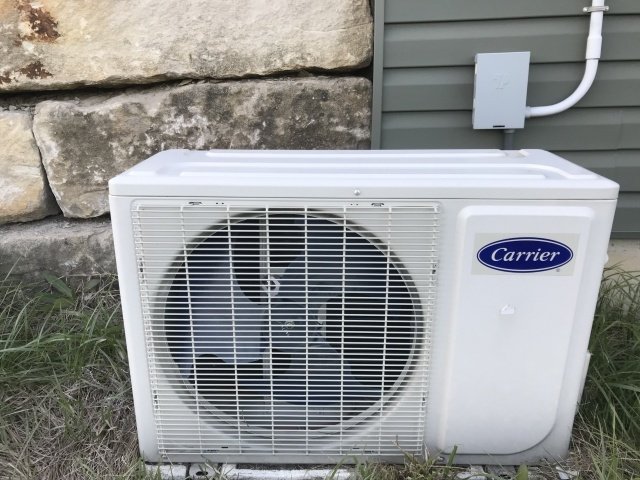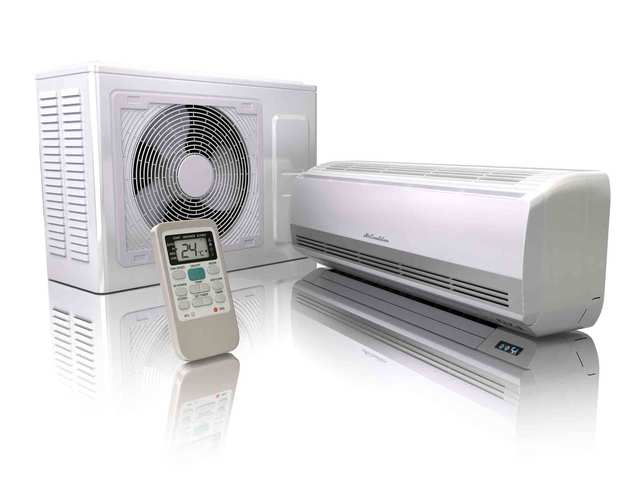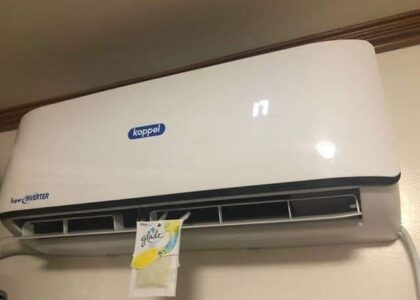If the thermometer climbs in the summer months, the stay indoors quickly becomes a torture. It is difficult to concentrate at work and sleep is difficult in the evening. An air conditioner is worth its weight in gold, because it cools the interior to the optimum temperature and puts an end to sweating. We will explain to you what air conditioning systems differ from each other and how they can even be used all year round.
Comparison of different types of air conditioners
If you would like to install an air conditioner at home, you have the choice between different variants, whose installation is connected with more or less large expenditure.
However, this should not deter you if you want to achieve a really good cooling of the rooms.
Monoblock air conditioner
Mobile air conditioning systems are selling like hot cakes as soon as the thermometer exceeds the 30 degree mark. At first glance they seem to be a practical and above all uncomplicated solution, but they make little sense. With this air conditioner, which you simply place in the room, the heat generated in the condenser must be dissipated to the outside via a hose.
So you have to leave a window or balcony door open all the time. This of course means that the hot air enters the room from outside, so that the cooling effect is zero. The appliances consume a lot of electricity and usually do not work very quietly.
Mono split air-conditioning unit (decentralised air-conditioning system)
The best and best known air conditioner is the so-called mono split air conditioner. The inner part is mounted in the room to be cooled on the inner wall and the outer part on the outer wall of the house. The two parts are connected to each other via a pipe leading through the wall.
Another advantage of these air conditioners is that the cooling circuit can be “reversed” so that they also function as heating. They then suck in the cold air outside in winter, convert it into heat and release the warm air inside the room. This air conditioning system is also known as decentralised air conditioning because each room is cooled individually.
Multi-split air-conditioning system
In this advanced version of the Brisbane Air Conditioning services mono-split air conditioner, several internal parts fixed in different rooms are connected to a single external part. It is therefore also known as a central air conditioner. This is recommended for a new building if the pipes can be installed in the walls to be erected. In the case of an existing property, the conversion costs are very high.
Operate the air conditioning all year round?
If you are constructing a new building or carrying out a fundamental renovation, in which you also replace your heating system, you should consider purchasing a modern, low-energy heat pump. In summer, it serves as an air conditioning system that draws in warm air from outside and releases it into the room as cold air.
In winter, you turn the cooling circuit around so that the appliance serves as a heater: the cold air from outside is heated and directed into the rooms. If you are not renovating or building, you can simply retrofit a mono split air conditioner. This works according to the same principle as the heat pump.
What you should know about air conditioners
#1 Installation
You can easily set up a mobile air conditioner yourself. However, if it is to be a real air conditioner, the specialist must be consulted. Legislation stipulates that only certified experts may handle refrigerants.

#2 Smart air conditioners
It’s worth investing in a smart air conditioner that you can control from your smartphone using an app. During the day, you can save energy by turning off the air conditioning even when it’s hot. In the evening, you activate it via an app when you leave your workplace and return to a wonderfully chilled home.
#3 Health risks?
There are no health risks from using an air conditioner. On the contrary, in summer heat your body will benefit from the pleasant coolness and you will sleep better. Just make sure you have your air conditioner serviced and cleaned regularly so that no bacteria or other micro-organisms can colonise it.










